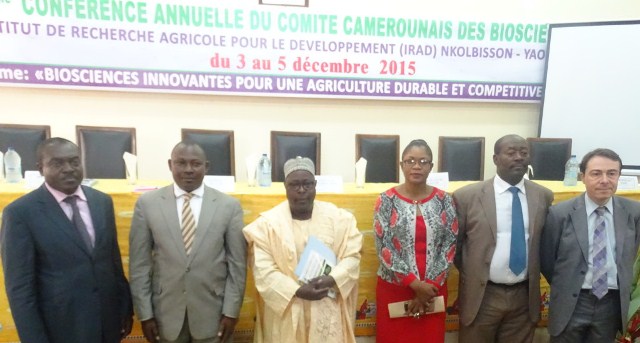 Yaounde-Cameroon is playing host to a training workshop of scientific journalists. From 5 to 9 December 2016, participants will be tarined on communication during health outbreaks.
Yaounde-Cameroon is playing host to a training workshop of scientific journalists. From 5 to 9 December 2016, participants will be tarined on communication during health outbreaks.
Close to 20 African journalists from francophone countries are meeting in Yaounde-Cameroon for a five day training workshop centered on communication during health outbreaks.The workshop organised by the World Federation of Science journalists (WFSJ) together with Scilife Cameroon seeks to drill journalists on infectious diseases, emrgencies in public health and epidemics notably yellow fever in Central Africa ,dengue and zika diseases in West Africa and bird flu. The journalists gathered at the « Mont Febe » hotel of yaounde are expected to upgrade their skills and knowledge on how to realise a good research on questions related to health, how to manage various sources of information with regard to modern media and social networks as well as the exploitation of data journalism.
According to Ivorian born SUY Kahofi Jischvi, freelance journalist and media trainer, the Yaounde workshop is aimed at exchanging with journalists from West and Central African regions on the management of communication during sanitary crises and on the importance of the term scientific journalist. For him, today when we talk of scientific journalists, we have schools of thoughts that differ from one another. Yet, the most important is to have journalists informed, trained and specialised on health outbreaks and emergencies which occur most often in our territories. New realities of science journalism will be unveiled during this training sessions. He said : « during this workshop, emphases will be laid on how to review the principles and styles which make up science journalism, as it is very important. Many journalists nowadays release information on infectious diseases but do not make use of appropriate journalistic styles and calibration while producing for instance; magazines, programmes and online contents on the subject matter in question.
« Journalists have less or limited resources and most of the time do not have a good mastering of science topics. The WFSJ intends to put in place a network of journalists that will enhance science journalism and better inform popoulations on health issues during outbreaks » said Anne Marie Legault, expert from the WFSJ. She outlined the fact that the ongoing meeting is a continuation of a series of workshops held in Cote d’Ivoire, Guinea, Liberia and Sierra Leone. The WFSJ being a non lucrative organisation founded in 2002, oversees the implementation of a project on improving Science-based Communication and Local Journalism in Emergency and Post Infectious diseases Outbreak Periods, which will help build the capacity of local African journalists.
By Elise Kenimbeni




